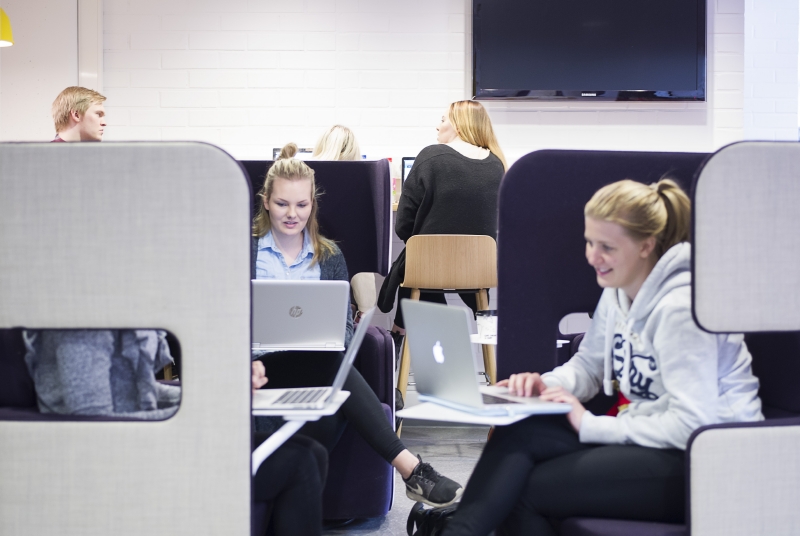
ESA is one of the DigiCampus’s five subprojects. The ESA subproject will ensure accessibility of the activities, environments and contents developed Focusing on accessibility, it helps to create established and exemplary accessibility practices and models along with mechanisms for the continuous assessment of practices in DigiCampus. The materials and training produced within the project will be accessible to all higher education institutions.
Why is this relevant and timely?
Digital services and learning environments are rapidly becoming more widespread and varied. Finnish universities and universities of applied sciences are currently harmonising their study information systems (e.g. student admissions and study opportunities available). Many educational institutions share the same key digital learning environments. Studies indicate that digital learning environments not only create new flexible study opportunities, but also raise new kinds of barriers to learning and participation, unless they are designed to be accessible in the first place. Based on research and student feedback, digital services and environments are currently not accessible to all students.
Accessibility of digital environments is not only ethically important or desirable, but also a statutory duty. At the end of 2016, the European Parliament adopted the Directive on the accessibility of the websites and mobile applications of public sector bodies (such as higher education institutions and libraries) which the Member States had to bring into force in their national legislation by 23 September 2018. In Finland, the Act on the Provision of Digital Services entered into force on 1 April 2019. For higher education institutes, this means much stricter accessibility standards.
When new electronic environments and services are developed and deployed, it is crucial to incorporate accessibility from the start. Practice has shown that this includes staff’s professional development needs. Even a relatively small technical or pedagogical solution can greatly improve the accessibility of learning environments and other facilities.
ESA subproject objectives
- Identify the key shared digital study services, systems and learning environments in higher education institutions and evaluate their accessibility using a range of testing methods (e.g. accessibility testing tools, diversity of students, and students and staff who use a range of assistive technologies).
- Develop technical and pedagogical solutions that will improve the accessibility of the identified and tested systems and learning environments.
- Identify and produce information to be included in the DigiCampus’s pedagogical support service for students and staff on practices, equipment, applications and accessibility tools that can facilitate study.
- Contribute to the development of a learning environment quality indicator for measuring the accessibility of environments.
- Provide (for the higher education institutions’ shared cloud service) technically and pedagogically exemplary accessibility training to support the professional skills of teaching, guidance and other staff in higher education (modelling accessibility).
Subproject partners
The University of Jyväskylä coordinates the ESA subproject for partners Häme University of Applied Sciences (HAMK) and Jyväskylä University of Applied Sciences (JAMK). The project partners work closely with the other higher education institutions participating in DigiCampus. Students contribute in many ways, for example by testing and evaluating existing or planned solutions. The ESA steering group monitors the progress of the subproject objectives. The project also covers cooperation between experts in various fields.
Inquiries:
https://digicampus.fi/
Tarja Ladonlahti, University of Jyväskylä
tarja.ladonlahti@jyu.fi, tel. +358 40 5767 754
